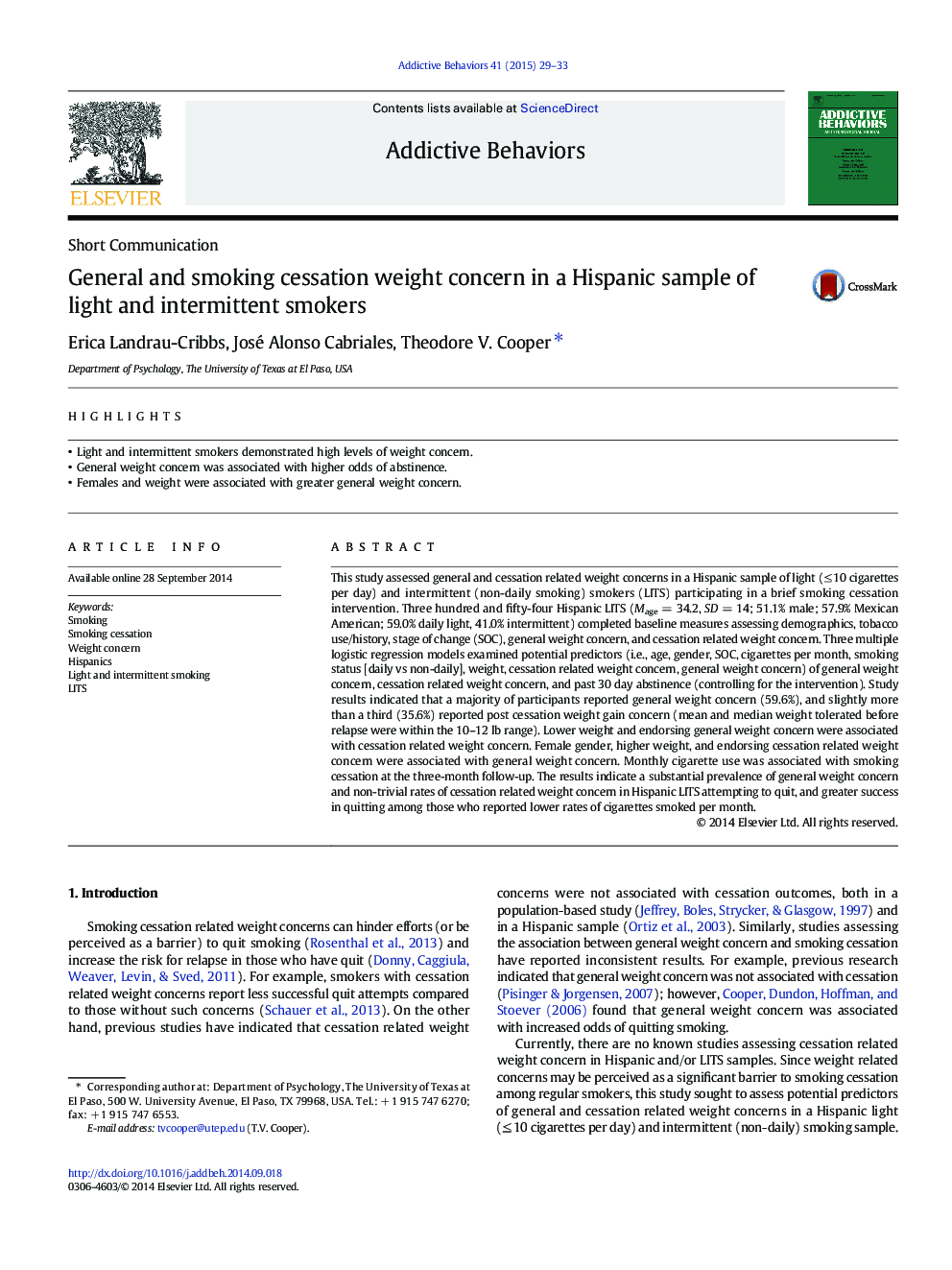| Article ID | Journal | Published Year | Pages | File Type |
|---|---|---|---|---|
| 7261180 | Addictive Behaviors | 2015 | 5 Pages |
Abstract
This study assessed general and cessation related weight concerns in a Hispanic sample of light (â¤Â 10 cigarettes per day) and intermittent (non-daily smoking) smokers (LITS) participating in a brief smoking cessation intervention. Three hundred and fifty-four Hispanic LITS (Mage = 34.2, SD = 14; 51.1% male; 57.9% Mexican American; 59.0% daily light, 41.0% intermittent) completed baseline measures assessing demographics, tobacco use/history, stage of change (SOC), general weight concern, and cessation related weight concern. Three multiple logistic regression models examined potential predictors (i.e., age, gender, SOC, cigarettes per month, smoking status [daily vs non-daily], weight, cessation related weight concern, general weight concern) of general weight concern, cessation related weight concern, and past 30 day abstinence (controlling for the intervention). Study results indicated that a majority of participants reported general weight concern (59.6%), and slightly more than a third (35.6%) reported post cessation weight gain concern (mean and median weight tolerated before relapse were within the 10-12 lb range). Lower weight and endorsing general weight concern were associated with cessation related weight concern. Female gender, higher weight, and endorsing cessation related weight concern were associated with general weight concern. Monthly cigarette use was associated with smoking cessation at the three-month follow-up. The results indicate a substantial prevalence of general weight concern and non-trivial rates of cessation related weight concern in Hispanic LITS attempting to quit, and greater success in quitting among those who reported lower rates of cigarettes smoked per month.
Related Topics
Life Sciences
Neuroscience
Behavioral Neuroscience
Authors
Erica Landrau-Cribbs, José Alonso Cabriales, Theodore V. Cooper,
